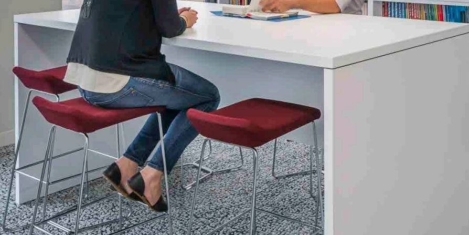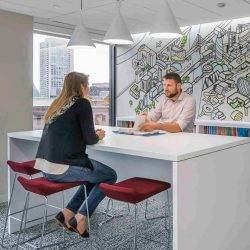May 4, 2018
Digital media overload as over half of workers unable to find information easily
Over half of UK workers (57 percent), are regularly experiencing an inability to locate information easily across a range of digital media, including emails, apps, messages and the internet, a new survey claims. The survey conducted via YouGov, for Evernote, also revealed that 87 percent of digital workers use up to four devices such as a smartphone, tablet, laptop, desktop, and/or a smart watch on a daily basis to access information. The majority (83 percent) of people use at least one app a day to source information. 31 percent of workers are accessing between five to nine apps per day and 18 percent are utilising over 10 apps a day. However, when it comes to face to face communications rather than digital, respondents were much more positive, with nearly half of those asked (45 percent) expressing that they felt they had the right number of meetings at work, and just 16 percent of those saying they feel their work day is filled with too many meetings.









 More than a quarter of managers (27 percent) in British companies would likely accept a salary cut to work for a company that has a clear purpose beyond profit a new report claims. A third (32 percent) would actually consider leaving their job if a greater purpose was unclear, while more than half (53 percent) would if their company’s values and purpose didn’t align with their own. The YouGov survey, commissioned by Danone UK, highlights the importance of having a defined company purpose that marries commercial success with social progress. The findings support a new report by not-for-profit think tank Tomorrow’s Company and Danone UK, that explores the importance of having a purpose beyond profit in helping companies to prosper in the face of workplace challenges created by an uncertain world.
More than a quarter of managers (27 percent) in British companies would likely accept a salary cut to work for a company that has a clear purpose beyond profit a new report claims. A third (32 percent) would actually consider leaving their job if a greater purpose was unclear, while more than half (53 percent) would if their company’s values and purpose didn’t align with their own. The YouGov survey, commissioned by Danone UK, highlights the importance of having a defined company purpose that marries commercial success with social progress. The findings support a new report by not-for-profit think tank Tomorrow’s Company and Danone UK, that explores the importance of having a purpose beyond profit in helping companies to prosper in the face of workplace challenges created by an uncertain world. 










 Robots will not as feared steal people’s jobs and will eventually improve productivity, but they will undercut workers’ contribution sufficiently to depress their wages. According to the third report in Barclays Impact Series, titled
Robots will not as feared steal people’s jobs and will eventually improve productivity, but they will undercut workers’ contribution sufficiently to depress their wages. According to the third report in Barclays Impact Series, titled 













April 9, 2018
How the UK car industry is driving the future of workplace design
by Paul Dunn • Comment, Workplace design
(more…)